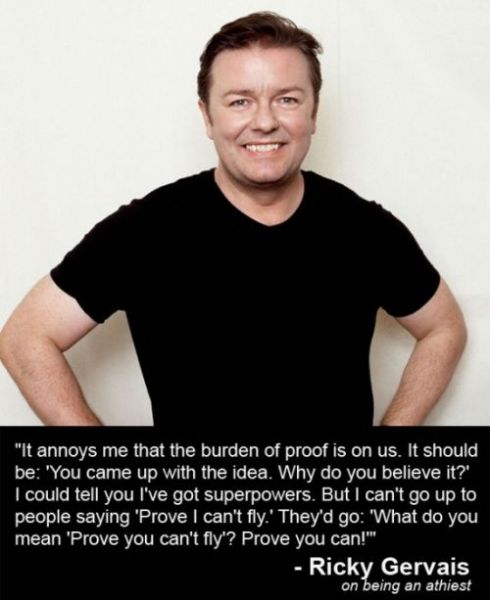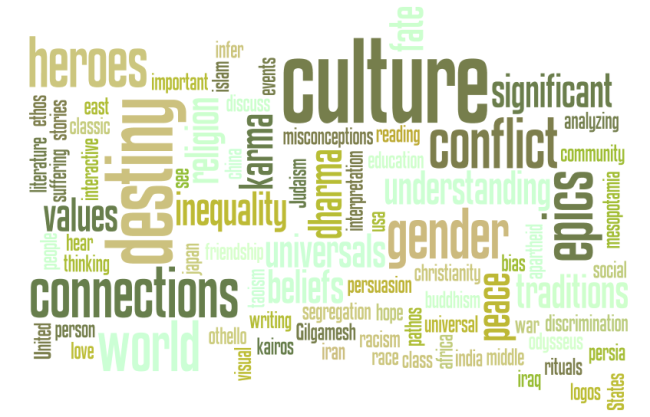HUMANITIES 1100: Intro To Humanities
- Course Reflections
Looking back at the range of topics and themes that we discussed in this class, I was able to gain insight on many facets and insights into several topics and understandings of what it is to be human. I learned how to think creatively and critically, to reason, and to ask questions. I took from this class several skills that allow me to gain new insights into everything ranging from poetry, paintings, religion, justice, equality, and our responsibility as humans from the decisions we make whether right or wrong. It ultimately gave me a better understanding and perspective of the world we live in.
Highlighted in this course are three signature analysis project and one group collaborative project. Below are each of those assignments, as well as introductions to all of them to give an idea behind the process of doing them.
Analysis With Adaptation Projects
Freedom, Responsibility, Justice Analysis with Adaption Project
Identity, Privilege, and Inequality Analysis with Adaption Project
Sacredness, Spirituality, and Morality Adaption with Analysis Project
____________________________________________________________________________________________________________
On Communicating and Collaborating Reflection
When I took the Humanities 1100 class, it was my second time taking it because I had some issues that made me withdraw from the class the semester that I took it. And in all honestly, I’m glad I was able to take this class with Professor Lewis because it the hardest I’ve ever been challenged in any class I’ve taken so far at SLCC. I’ve never undertaken so much work that involved so much writing (not even my English classes!) and I think looking back on everything, I feel like I’ve been writer, as well as critical thinker. I was taking ENGL 2010 along with this HUMA class, and I feel like the writing and critical reflection assignments I did helped me a lot with my ENGL class. My professor in that class even complimented me about my writing skills, and I think a lot of that was attributed to what I was able to do here in HUMA 1100.
One of my favorite assignments was the “Identity, Privilege, and Inequality Analysis with Adaptation Project” as I feel like I was able to heavily relate to the idea of identity and understanding and accepting yourself through my own experiences as an Asian-American and allowing that to inform my work with critically analyzing “Growing Up Asian in America” by Kesaya E. Noda. Here’s a little bit of an excerpt from it, but you can find the link to the entire project above.
“There’s a quote from this story that goes directly to the heart and true meaning of what Noda was trying to convey: “How is one to know and define oneself?” In the case of Asian-Americans, how does one stand by their identity and their culture, but still acknowledge themselves as an American as well? Many common experiences amongst many young Asian-Americans include the rejecting of their Asian roots and culture just to be able to fit in with everyone else.”
The above analysis was one of the events that helped with my understanding of the world, not so much in a broad world-spanning sense, but more of a personal understanding of myself and being able to connect my personal story and experiences to a larger view of the world. Knowing that other people have experienced similar things as I, and knowing how they were able to deal with adversity and hardships will help me with my own issues.
 Some other events that also helped with my understanding of the world include the Atheist discussion, which is also one of my favorites. I mean, it’s a fascinating topic and viewpoint that is mostly not accepted by the majority of the world. But when you really get to the core of Atheism, it’s mostly just a journal for truth and knowledge and an understanding of the mysteries of the world through the lens of science. An excerpt from the discussion that I submitted: “I think when you strip the main point of Atheism (the rejection of the belief in the existence of deities), you’ll find that another aspect of Atheism is to seek the truth through science, something if I remember correctly, is something that is prevalent in Islam as far as Arab scholars seeking knowledge to learn, as well as improve essential things like medicine and science. And while an Atheist may say God doesn’t exist, I don’t believe they’re saying that faith doesn’t exist.
Some other events that also helped with my understanding of the world include the Atheist discussion, which is also one of my favorites. I mean, it’s a fascinating topic and viewpoint that is mostly not accepted by the majority of the world. But when you really get to the core of Atheism, it’s mostly just a journal for truth and knowledge and an understanding of the mysteries of the world through the lens of science. An excerpt from the discussion that I submitted: “I think when you strip the main point of Atheism (the rejection of the belief in the existence of deities), you’ll find that another aspect of Atheism is to seek the truth through science, something if I remember correctly, is something that is prevalent in Islam as far as Arab scholars seeking knowledge to learn, as well as improve essential things like medicine and science. And while an Atheist may say God doesn’t exist, I don’t believe they’re saying that faith doesn’t exist.
In “Religion Without God,” Dworkin says, “Each person has an innate inescapable responsibility to try to make his life a successful one: that means living well, accepting ethical responsibilities to oneself as well as moral responsibilities to others.” And I think when you strip down all of these faiths, ideas of spirituality and beliefs, you have essentially that moral responsibility of being good/kind to others as well as to yourself, which I think is the common thread amongst all of these things, regardless of core beliefs.
With the Magazine project, it almost seemed a little daunting due to the fact that I’ve never engaged in a group project that solely consisted of communicating with the other members of my group only through the internet. I almost thought that we weren’t going to be able to finish the project, but looking back on how smoothly it went, I don’t think it could’ve gone any better, really. I took many important lessons from the group project such as organization, taking on leadership, being able to give advice, provide revisions, as well as helpful criticism when necessary.

You can see the magazine project here at Lens of War Magazine, and it’s a wonderfully created site from one of the members in our group, Allison. I contributed a lead editorial, an educated opinion piece about the ways in which filmmakers communicate social justice issues relating to war which you can read here. The other article I contributed was an elemental analysis discussing the ways Animation in film being an amazing medium to use in portraying and telling such powerful stories about War.
As far as risks that I took related to the magazine, with my editorial, I didn’t want to necessarily highlight the positive aspects of what war movies typically highlight, especially a lot of pro-war rhetoric that comes with these kinds of films no matter how you portray it. At the same time, many war films are propaganda for both pro and con sides of it, and I felt like I took a risk (or maybe not a risk depending on who reads this) in trying to analyze those aspects, for example:
“And whether or not you agree or disagree about war films drawing a false idea of the truths of war, these films still influence as viewers, better or worse, and inform our beliefs and opinions in regards to war. There are films that show the ugliness of war (considered anti-war films) like Apocalypse Now (Francis Ford Coppola, 1979) and Full Metal Jacket (Stanley Kubrick, 1987) to sometimes even glamorizing it through a message of pro-war like 300 (2007). According to David Sterritt, a film critic/author/scholar, war films more often than not “influence our thoughts of hatred, aggression, and violence toward war.”


